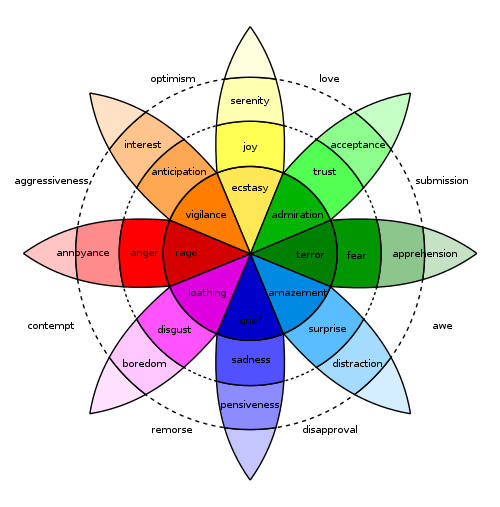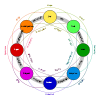Confusion
In medicine, confusion is the quality or state of being bewildered or unclear. The term "acute mental confusion"[1] is often used interchangeably with delirium[2] in the International Statistical Classification of Diseases and Related Health Problems and the Medical Subject Headings publications to describe the pathology. These refer to the loss of orientation, or the ability to place oneself correctly in the world by time, location and personal identity. Mental confusion is sometimes accompanied by disordered consciousness (the loss of linear thinking) and memory loss (the inability to correctly recall previous events or learn new material).[3] The term is from Latin: confusĭo, -ōnis, from confundere: "to pour together", "to mingle together", "to confuse".
| Confusion | |
|---|---|
| Specialty | Psychiatry |
Causes
Confusion may result from drug side effects or from a relatively sudden brain dysfunction. Acute confusion is often called delirium (or "acute confusional state"),[4] although delirium often includes a much broader array of disorders than simple confusion. These disorders include the inability to focus attention; various impairments in awareness, and temporal or spatial dis-orientation. Mental confusion can result from chronic organic brain pathologies, such as dementia, as well.
Other
- Acute stress reaction
- Alcoholism
- Anemia
- Anxiety
- Brain damage
- Brain tumor
- Concussion
- Dehydration
- Encephalopathy
- Epileptic seizure
- Depression
- Fatigue
- Fever
- Brain injury
- Heat stroke
- Hypoglycemia
- Hypothermia
- Hypothyroidism
- Jet lag
- Kidney failure
- Kidney infection (pyelonephritis)
- Lactic acidosis
- Lassa fever
- Lewy body dementia
- Listeria
- Lyme disease
- Meningitis
- Postpartum depression & Postpartum psychosis
- Psychotic Disorder
- Reye's syndrome
- Rocky Mountain spotted fever (RMSF)
- Schizophrenia
- Sick building syndrome
- Sleep apnea
- Stroke
- Yellow fever
- STDs & STIs
- Streptococcal Infections
- Toxicity
- Toxic shock syndrome
- Transient ischemic attack (TIA, Mini-Stroke)
- Acute Porphyria
- West Nile virus[5]
Differential diagnosis
The most common causes of drug induced acute confusion are dopaminergic drugs (used for the treatment of Parkinson's disease), diuretics, tricyclic, tetracyclic antidepressants and benzodiazepines or alcohol. The elderly, and especially those with pre-existing dementia, are most at risk for drug induced acute confusional states.[6] New research is finding a link between vitamin D deficiency and cognitive impairment (which includes "foggy brain").[7]
See also
References
- Confusion Definition on Oxford Dictionaries.
- Delirium, Symptom Finder online.
- confusion in TheFreeDictionary, citing: Dorland's Medical Dictionary for Health Consumers; 2007; Saunders.
- Acute Confusional State; Dr. Gurvinder Rull; patient.info; Document ID/Version/Reference: 1714/22/bgp2104; updated: 13 Jan 2009; accessed: when?.
- "Confusion: Symptoms, Signs, Causes & Treatment". MedicineNet. Retrieved 3 February 2016.
- Hufschmidt, A.; Shabarin, V.; Zimmer, T. (December 2009). "Drug-induced confusional states: the usual suspects?". Acta Neurologica Scandinavica. 120 (6): 436–8. doi:10.1111/j.1600-0404.2009.01174.x. PMID 19804475.
- Etgen, T.; Sander, D.; Bickel, H.; Sander, K.; Förstl, H. (2012). "Vitamin D Deficiency, Cognitive Impairment and Dementia: A Systematic Review and MetaAnalysis" (PDF). Dement Geriatr Cogn Disord. 33: 297–305. doi:10.1159/000339702. PMID 22759681.

